Speakers
19th Annual Conference
Standing Up for Animals: Can a Bad Economy Inspire Greater Goodness?
_____________________________________________________________________
Keynote Speakers
Dr. Bernard E. Rollin
University Distinguished Professor, Colorado State University
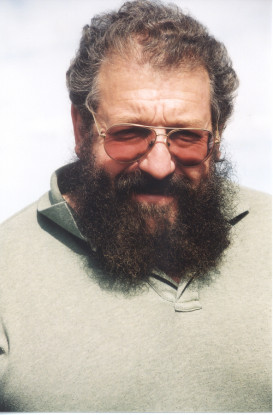
Rollin taught the first course ever done in the world in veterinary medical ethics, which has been a required part of the veterinary curriculum at CSU since 1978, and was a pioneer in reforming animal use in surgery teaching and laboratory exercises in veterinary colleges. He is a principal architect of 1985 federal legislation dealing with the welfare of experimental animals, and has testified before Congress on animal experimentation. He has consulted for various agencies of the governments of the U.S., Canada, Australia, the Netherlands, New Zealand, and South Africa on many aspects of animal research, for the Office of Technology Assessment of the U.S. Congress on genetic engineering of animals, for NIH on animal pain, and for the World Health Organization on using antimicrobials in food animals. He has consulted for the USDA/CSRS on farm animal welfare research, for APHIS on future planning, and for numerous multinational corporations on a variety of animal issues. These companies include United Airlines, McDonald’s, PETCO, DuPont, Chipotle, and the US Soybean Association. He served on the Pew National Commission on Industrial Farm Animal Production (PCIFAP) and on the Institute for Laboratory Animal Resources (ILAR) Council of the National Academy of Sciences. In 2008, he mediated a historic agreement between the Humane Society of the U.S. and Colorado agriculture resulting in legislation advancing the welfare of farm animals.
Click here to read more about Professor Rollin.
Joyce Tischler
Founder and General Counsel, Animal Legal Defense Fund
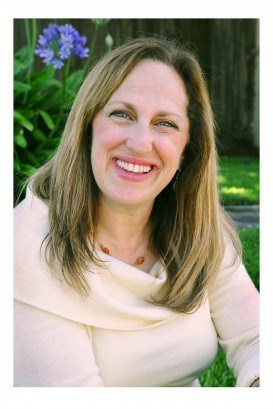
As one of the visionaries who co-founded the Animal Legal Defense Fund over a quarter century ago, California attorney Joyce Tischler has helped shape the emerging field of animal law. Joyce handled some of Animal Legal Defense Fund’s earliest cases, including a 1981 lawsuit that halted the U.S. Navy’s plan to kill 5,000 feral burros and a 1988 challenge to the U.S. Patent Office’s rule allowing the patenting of genetically altered animals. She has tackled such diverse topics as challenges to hunting and trapping using the National Environmental Policy Act (NEPA) and the Endangered Species Act (ESA), enforcement of the federal Animal Welfare Act, standing to sue, animal custody battles, the right to kill animals pursuant to will provisions, landlord-tenant issues and damages and recovery for injury to or death of an animal. Joyce was the Animal Legal Defense Fund’s executive director for 25 years and now serves as the agency’s general counsel, responsible for writing, lecturing on and promoting the field of animal law. In 2009, The American Bar Association Tort Trial & Insurance Practice Section (TIPS) Animal Law Committee honored Joyce with the Excellence in the Advancement of Animal Law Award.
Panelists
Sara Amundson
Executive Director, Humane Society Legislative Fund
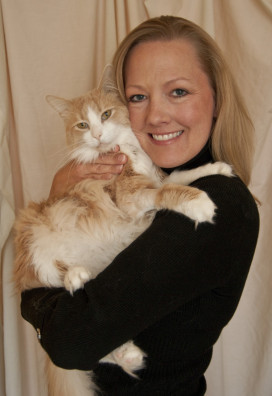
Sarah Baeckler
Executive Director, Chimpanzee Sanctuary Northwest
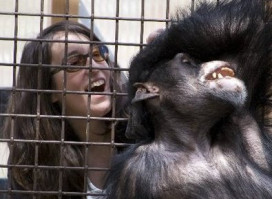
Bruce Berning
Attorney, Tonkon Torp LLP

Rebeka Breder
Barrister & Solicitor, Boughton Law Corporation; Board of Directors, Vancouver Humane Society

Taimie Bryant
Professor of Law, UCLA School of Law

David Cassuto
Professor of Law, Pace Law School
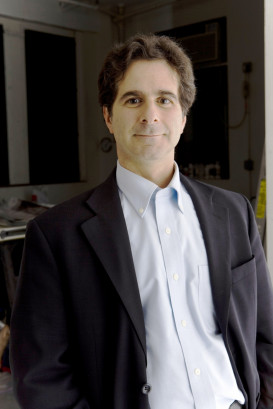
He speaks and writes frequently on animal law & policy as well as many other topics within environmental law and environmental and cultural studies. In addition to several books and many articles on topics ranging from water as cultural signifier to climate change & factory farms, Professor Cassuto is also the founder and principle contributor to the Animal Blawg, a blog on animal law, ethics, and policy.
Pete Castleberry
Attorney at Law, Castleberry & Elison, PC
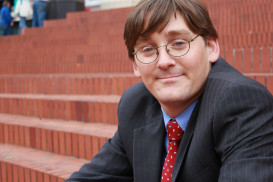
Ethan Davidsohn
Sous Chef, Lewis & Clark College
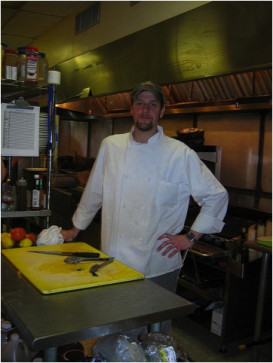
In his spare time, Ethan likes to cook at home for his wife Emily, as well as their two dogs Dually and Ramona. He is also an avid home brewer who enjoys mixing beer styles to create unique and delicious combinations. Ethan has spent a lot of time over his more than 15 years of cooking, exploring ways to mimic classic dishes that contain animal products using few additives, chemical agents, or processed ingredients.
Maneesha Deckha
Professor of Law, University of Victoria, Faculty of Law
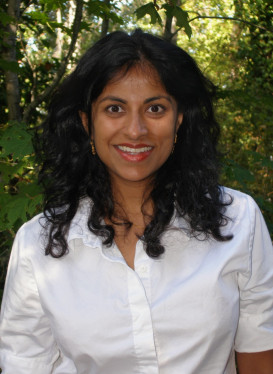
Professor Deckha is the recipient of grants from the Canadian Institutes of Health Research and the Social Sciences and Humanities Research Council. In 2008 she held the Fulbright Visiting Chair in Law and Society at New York University to pursue her book project integrating critical animal studies with animal law.
Professor Deckha has taught her seminar Animals, Culture and the Law at NYU and the University of Victoria. She has also taught courses in Bioethics, Personhood and the Law; Feminist Legal Theories; Administrative Law; Property; Law, Legislation and Policy; and Legal Process. She has been the recipient of the Faculty’s Annual Teaching Award and University of Victoria Learning and Teaching Centre Grants in support of her interactive pedagogy. In 2006, her seminar on Animals, Culture and the Law received the U.S. Humane Society’s Animal and Society New Course Award.
Professor Deckha received her BA from McGill University, her LL.B from the University of Toronto and her LLM from Columbia University.
Carter Dillard
Director of Litigation, Animal Legal Defense Fund

Geordie Duckler
Founder & Attorney, The Animal Law Practice
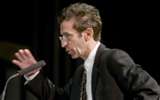
As a scientist, Duckler received his doctorate in biology from UCLA in 1997. Throughout the 1990’s, he lectured and published extensively on animal anatomy and the role of disease in ancient and modern populations. He received his gross anatomy training from UCLA Medical School and his orthopedic pathology training from the Center for Advanced Medical Education at the AFI Institute of Pathology in Washington, D.C. His original scientific research in the paleopathological diagnosis of disease conditions in late Pleistocene and Holocene mammals in North American assemblages interpreted fossil evidence for increased physiological stress through pathological indicators, gross trauma, and skull and tooth abnormalities, and his numerous publications in the Journal of Vertebrate Paleontology and Animal Conservation contributed to a better assessment of animal health, including a better evaluation on stresses in endangered Florida pumas. That work established the very first use of Harris lines in paleontological research as a general health indicator. His modern fauna research and anatomical dissection of cranial and masticatory musculature of captive felids at the Los Angeles County Museum, and his publications in Zoo Biology describing previously unknown features in large felids raised in captivity, recorded, for the very first time, new musculatory and osteological formations in the skulls of captive tigers and contributed to a better understanding of the health of zoo animals.
As an attorney, Duckler received his JD from Lewis & Clark Law School in 1987 and over the last 24 years has practiced civil and criminal law primarily in Oregon and California. His 1997 law review article on zoo animals received national recognition and became the focus of a landmark law conference by the Bar Association of New York. Other law review articles have addressed the economic value of domestic animals from an anthropological perspective, analyzed evidentiary problems in the proof of animal legal issues, and criticized the promotion of animal “rights”. In 2001, Duckler made national headlines as counsel in Brock v. Rowe, a civil action in Washington County, Oregon that garnered significant attention for championing the tort of “loss of companionship,” as well as for the recovery of emotional distress damages for companion pet owners. In 2006, Duckler again made headlines in Greenup v. Weaver, a civil action in Clackamas County, Oregon that garnered national and international attention for championing loss of companionship as well as for obtaining one of the highest jury verdicts in the country in a companion animal death case. In 2008, Duckler was once again covered extensively in national and international press for representing the owner of the infamous black-tail deer “Snowball” in Filipetti v. Oregon Department of Fish and Wildlife, a civil action in Clackamas County disputing rights of private possession in rescued wildlife.
Along with representing a diverse clientele of pet owners, animal shelters, recreational riders, commercial farmers, ranchers, neighborhood associations, specialty dog and cat breeders, stable owners, animal welfare activists, sportspeople, consumers, veterinarian clients, and private adoption agencies, Duckler has taught animal law courses as an adjunct professor at Lewis & Clark Law School in Portland, sits regularly as a hearings officer for Multnomah County Animal Services, and presents yearly professional CLEs in both Oregon and California on animal law for the state bars. Duckler is frequently profiled in regional and national newspapers and magazines, as well as on television and radio programs about animal law issues and cases, including in The Oregonian, The Tribune, Willamette Week, The National Law Journal, Court TV Radio, Geraldo, Newsweek, The New Yorker, Playboy, and on National Public Radio, Canadian Broadcasting, and the BBC. He writes a regular column for The Bark magazine as its resident legal expert, and was featured in two National Geographic nature documentaries in 2007 and 2009. Most recently, Duckler has been collaborating with Dr. Sebastien Gay, an economics professor at the University of Chicago, on an upcoming book about an objective assessment of the value of dogs as companion pets. Duckler anticipates commemorating his 1000th animal law case this summer.
Will Fantle
Co-Founder, The Cornucopia Institute
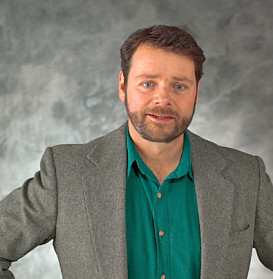
Mr. Fantle’s previous professional experience is varied but always with a focus on the environment. He has worked in both the public and private sectors developing and promoting renewable energy technologies. Fantle has been a respected consultant in the area of recycling, focusing on municipal and industrial waste generators. For many years he was a regular contributor of feature articles on environmental, resource, food, and health issues for national magazines and urban weekly papers. He is a 2001 recipient of an award from Fairness and Accuracy in Media’s Project Censored for his story, Plutonium Pancakes. Mr. Fantle has also worked as webmaster for the Wisconsin Stewardship Network, a coalition of the state’s hunting, fishing and environmental groups.
Mr. Fantle graduated with honors from the UW-Eau Claire with degrees in Economics and Political Science. He has been a longtime environmental activist, has served on the boards of several environmental organizations active in Wisconsin, and serves on the Eau Claire County Board. He is married and resides with his wife Francie in Eau Claire, Wisconsin.
David Favre
Professor of Law, Michigan State University College of Law
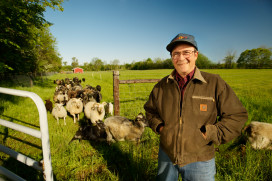
He was a national officer of the Animal Legal Defense Fund for 22 years. Presently he is the Legislative Chair of the ABA/TIPS Committee on Animal Law.
Pamela Frasch
Assistant Dean, Animal Law Program and Executive Director, Center for Animal Law Studies at Lewis & Clark Law School

Previously, Dean Frasch was general counsel for the Animal Legal Defense Fund, and in 1996, she created the ALDF Criminal Justice Program which has since assisted law enforcement and animal advocates in investigating and prosecuting thousands of animal abuse and neglect cases nationwide.
In addition to her duties with CALS, Dean Frasch is co-editor of the first casebook in the field, Animal Law, Cases and Materials now in its fourth edition (Carolina Academic Press, 2010), and co-author of Animal Law in a Nutshell (Thomson West, 2010). She has taught survey and advanced courses in animal law at Lewis & Clark Law School since 1998 and co-authored (with Professor Kathy Hessler and Megan Senatori) the amicus brief submitted in the U.S. v. Stevens case on behalf of 45 law professors who teach animal law.
Dean Frasch is a frequent speaker on issues of animal law and is the principal author of Oregon’s first felony anti-cruelty law. She has authored or co-authored many articles and book chapters in the field, and has been recognized by the Humane Society of the United States and the Oregon Humane Society for her contributions.
Sophie Gaillard
Law Student, McGill University, Faculty of Law
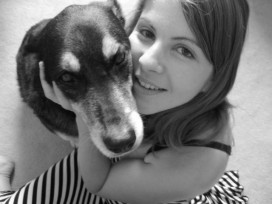
Laura Handzel
Assistant Director, Center for Animal Law Studies at Lewis & Clark Law School
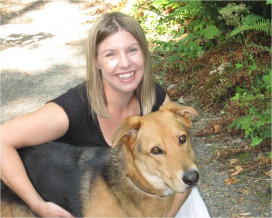
Laura earned her JD from the University of Wisconsin in Madison, completing a Certificate of Special Training in Environmental Law & Policy Analysis. She is a magna cum laude graduate of the University of Arizona, earning degrees in anthropology and french, plus a minor in sociology. She was also fortunate to complete some of her studies at the University of Pau, France.
Laura grew up on a working farm in the Midwest and comes from a family of lawyers, fostering a passion for both environmental and animal law. Within the field of animal law, she has special interests in farmed animals, wildlife, the link between domestic violence and animal cruelty, breed discrimination, social justice, as well as public health and policy issues. Laura enjoys spending time outdoors, especially with friends and family, which include her four rescued companion animals.
Scott Heiser
Director, Criminal Justice Program, Animal Legal Defense Fund
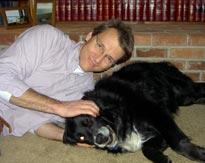
Kathy Hessler
Clinical Director, Center for Animal Law Studies at Lewis & Clark Law School
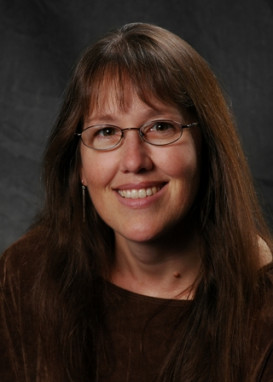
Prior to teaching at Lewis & Clark, Professor Hessler taught in clinical programs at Case Western Reserve University Law School, Cornell Law School, the University of Dayton Law School, the Capital University School of Law, and Georgetown University Law Center.
She has been an animal activist and vegan since the late 1980’s. She has been an advisor to the journal Animal Law since 1998, and is currently a SALDF faculty advisor. She coaches the animal moot court teams, and has been teaching Animal Law directly since 2001 and as a part of nonviolence courses beginning in 1989. She was a board member with ALDF and helped found the Animal Law Committee of the Cuyahoga County Bar. She was the chair and a founder of the Animal Law Section of the American Association of Law Schools. She co-authored (with Pamela Frasch and Megan Senatori) the amicus brief submitted in the U.S. v. Stevens case, on behalf of 45 law professors who teach animal law. She co-authored Animal Law in a Nutshell (with Pamela Frasch, Sarah Kutil and Sonia Waisman) and has written numerous other law review and other articles and she is co-authoring two new books on animal law.
Professor Hessler lectures widely on animal law and animal law education issues in the US and beyond.
Rebecca Huss
Professor of Law, Valparaiso University School of Law
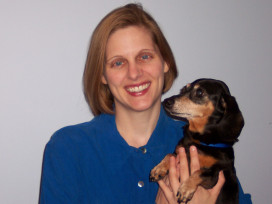
Recent publications include: Canines in the Classroom: Service Animals in Primary and Secondary Educational Institutions; Why Context Matters Defining Service Animals Under Federal Law, Lessons Learned: Acting as Guardian/Special Master in the Bad Newz Kennels Case; Issues Relating to Companion Animals and Housing, in Animal Law and the Courts: A Reader (Taimie L. Bryant, Rebecca J. Huss & David N. Cassuto eds., 2008); Rescue Me: Legislating Cooperation between Animal Control Authorities and Rescue Organizations; Valuation in Veterinary Malpractice; Separation, Custody, and Estate Planning Issues Relating to Companion Animals; and Valuing Man’s and Woman’s Best Friend: The Moral and Legal Status of Companion Animals. Her primary focus in research and writing is on the changing nature of the relationship between humans and their companion animals and whether the law adequately reflects the importance of that relationship and issues relating to service animals.
Links to her publications and other biographical information about Professor Huss can be found at her faculty webpage at www.valpo.edu/law/faculty/rhuss.
Steve Johansen
Professor of Law, Lewis & Clark Law School
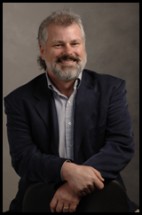
Robert Klonoff
Dean and Professor of Law, Lewis & Clark Law School
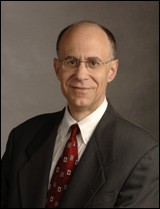
After graduating from law school, Dean Klonoff clerked for the Honorable John R. Brown, Chief Judge of the United States Court of Appeals for the Fifth Circuit. He then served as an Assistant United States Attorney in D.C. and as an Assistant to the Solicitor General of the United States. After his government service, he was a visiting professor at the University of San Diego Law School. He later served for many years as a partner at the international law firm of Jones Day. At Jones Day, Dean Klonoff handled complex litigation at both the trial and appellate levels and also held the administrative post of chair of the pro bono program for all of the firm’s 20+ offices. He received an award from the DC Bar for public service, was instrumental in establishing a free walk-in clinic in DC’s Shaw neighborhood, and served as a board member for the Washington Lawyers’ Committee for Civil Rights and Urban Affairs and for Bread for the City. While practicing at Jones Day, Dean Klonoff served for many years as an Adjunct Professor of Law at Georgetown University Law Center.
In 2003, Dean Klonoff was selected as the Douglas Stripp/Missouri Endowed Professor of Law at the University of Missouri/Kansas City School of Law. As the holder of this position, Dean Klonoff received two awards for most outstanding teacher and an award for service to the law school community. Dean Klonoff was also selected by the third year class to deliver the 2007 commencement speech.
Dean Klonoff has extensive litigation experience. He has argued eight cases before the United States Supreme Court, including Gentile v. Nevada Bar and Kungys v. United States, and has argued dozens of cases in other federal and state appellate courts throughout the country. He has also tried dozens of cases (primarily jury trials). In addition, he has served as an expert witness on class action issues in several federal and state court cases and has personally represented clients on both the plaintiff and defense side in more than 100 class actions. His pro bono cases have included death penalty, civil rights, and veterans’ rights cases.
Deborah Knaan
Deputy District Attorney, Los Angeles County District Attorney’s Office
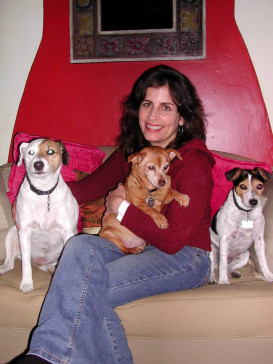
Deborah Knaan has been a Deputy District Attorney since 1996. Her assignments have included prosecuting hardcore gang crimes and felony sexual assaults and child molestation.
In 2004 Ms. Knaan was appointed by the Mayor of Los Angeles to the Los Angeles City Board of Commissioners for the Los Angeles Department of Animal Services. As a commissioner, Ms. Knnan was responsible for overseeing, and setting policy for the Department, which operates seven animal shelters.
In 2006 Ms. Knaan was given a leave of absence from the District Attorney’s Office to serve as the Assistant General Manager of Operations for the Department of Animal Services. As Assistant General Manager, Ms. Knaan oversaw the day-to-day operations at the shelters and supervised the shelter staff, as well as the field officers and animal cruelty investigations.
In 2007 Ms. Knaan returned to the District Attorney’s Office to become the Office’s first Animal Cruelty Case Coordinator. As the Animal Cruelty Case Coordinator Ms. Knaan oversees the prosecution of all animal cruelty cases within the County of Los Angeles. Ms. Knaan also trains prosecutors and animal control and law enforcement agencies on how to investigate, file, and prosecute cases of cruelty and neglect. Ms. Knaan has been responsible for creating a dog fighting tip line, a court-ordered program for those convicted of animal neglect, and a public awareness campaign that warns of the dangers (and illegality) of leaving animals in hot vehicles.
Matthew Liebman
Staff Attorney, Animal Legal Defense Fund
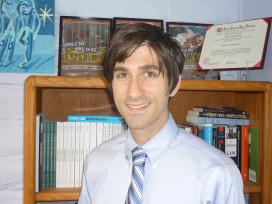
Paul Locke
Associate Professor, Johns Hopkins Bloomberg School of Public Health
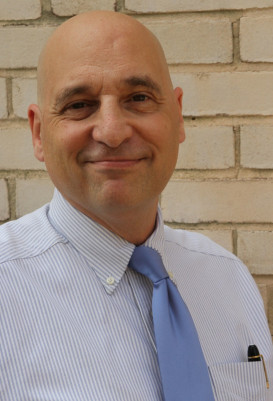
Dr. Locke’s research and practice focus on how decision makers use environmental health science and toxicology in regulation and policy-making and how environmental health sciences influence the policy-making process. His areas of study include radiation policy, as well as the law of humane science and policy, with an emphasis on how in-vitro and non-mammalian toxicology data can be incorporated into regulatory decision making under US laws. He also studies the impact of the US legal system on the development of non-mammalian toxicology and alternatives to animals in testing. Dr. Locke directs the School’s Doctor of Public Health program in Environmental Health Sciences and is a faculty member of the Center for Alternatives to Animal Testing and the Center for Law and the Public’s Health. He has published papers in peer reviewed journals and law reviews, including the Columbia Journal of Environmental Law, The Environmental Law Reporter, Health Physics, and the Journal of Toxicology and Environmental Health.
Dr. Locke has served on 6 National Academy of Sciences study committees, including the committee that updated the Guide for the Care and Use of Laboratory Animals.
Russ Mead
General Counsel, Animal Law Coalition
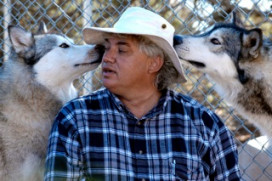
Teresa Menendez-Taboada
Director, AnimaNaturalis Internacional
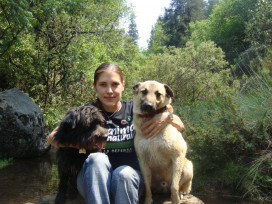
Event Coordinator:
Liberty Mulkani
lmulkani@lclark.edu